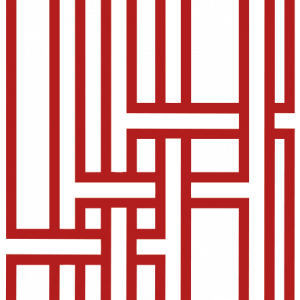
The History Health & Healing autumn meeting is coming up! On 16 September, 2022, we hope to see you at the UMC Utrecht. In our autumn meeting, medical history always ‘meets’ another discipline. This year, that discipline is health policy. We look forward to welcoming historians, policymakers and interested members of the public at the UMC Utrecht. There are drinks afterwards, so there is ample opportunity to get (re)acquainted with HHH members with all kinds of expertise.
Participation is free!
Date and time: Friday 16 September, 2022, 13.00-17.00/17.30
Venue: ONLINE – see below
Registration: please send an e-mail to historyhealthhealing@gmail.com
IMPORTANT NOTE: due to the public transport strike in Utrecht on Friday September 16, the HHH meeting has been moved online. Those who have registered already will receive a link via e-mail to attend the meeting. If you have not registered yet, send a message to historyhealthhealing@gmail.com. The meeting times will stay the same, starting at 13.30 and finishing at 17.15/17.30.
Medical history meets health policy
In March 2020, the WHO officially declared Covid-19 a global pandemic. As we speak, the disease has caused more than 540 million cases and 6.5 million confirmed deaths worldwide. National responses to the pandemic differed widely, ranging from ignoring or downplaying the disease to a massive response including social distancing, quarantine, and vaccination. The response of the Dutch government was exclusively informed by the biomedical expertise of members of the Outbreak Management Team (OMT) which is part of the National Institute for Public Health and the Environment (RIVM). In response, the Red Team was established, consisting of behavioural scientists and economists. They claimed to offer multidisciplinary complementary policy advice going beyond biomedical expertise. Should historians have been included in the OMT or the Red Team? Can we learn from history?
While some argue that history is irrelevant to health policy because it does not yield ‘actionable knowledge’, others advocate applied history. During this workshop, we will explore what history has to offer to health policy and, vice versa, how public health workers may set the research agenda of historians. Our keynote speaker is Alex de Waal, who is the author of New pandemics, old politics: two hundred years of war on disease and its alternatives (Cambridge: Polity, 2021), in which he makes the case for a new democratic public health for the Anthropocene. The keynote lecture will be followed by a round table with experts from the OMT, policymaking and the field of medical history.
Meeting programme
Please note that the first talk and the keynote lecture will be in English. The roundtable will be in Dutch.
13.00: doors of the Pink lecture hall open.
First session, chaired by Frank Huisman (in English).
13.30-14.00: talk by Roel Coutinho, former Director of the Centre for Infectious Disease Control of the National Institute for Public Health and the Environment (RIVM): “About Q-Fever, Smallpox and Influenza: Lessons Learned from the Past”.
14.00-15.15: first Daniël de Moulin lecture (online) by Alex de Waal, director of the World Peace Foundation and author of New pandemics, old politics: “New Pandemics, Old Politics: Two Hundred Years of War on Disease and its Alternatives”.
15.15-15.30: announcement of the Stichting Historia Medicinae thesis prize winner.
15.30-16.00: tea break.
Second session, chaired by Hieke Huistra (in Dutch).
16.00-17.00/17.15: pitches and round table by:
– Marjolijn Sonnema, Director-General of Public Health at the Ministry for Public Health, Wellbeing and Sport: “Dilemma’s in crisistijd”.
– Anja Schreijer, Director of Medical Affairs at the Pandemic & Disaster Preparedness Centre: “Geleerde lessen Covid-19: tijd voor vernieuwing!”.
– Robert Vonk, senior advisor at the Council for Public Health and Society and medical historian: “Historische kennis leidt niet tot beter beleid”.
– Rina Knoeff, medical historian and Director of the Groningen Centre for Health and Humanities: “Beleid zonder historische kennis is blind”.
17.00/17.15-17.15/17.30: closing comments by the HHH committee.
After 17.15/17.30: drinks at the Pink lecture hall.